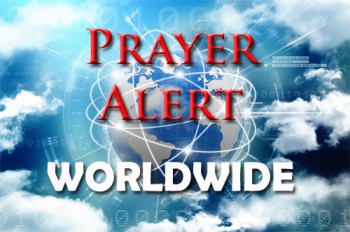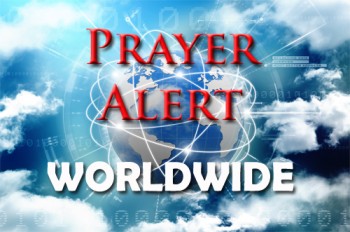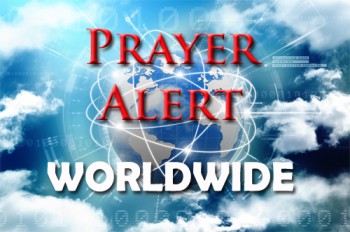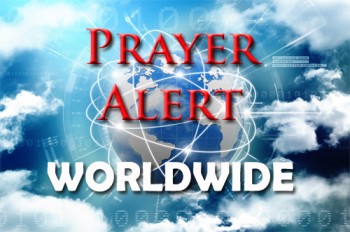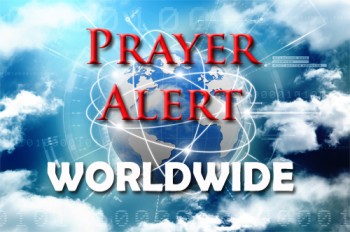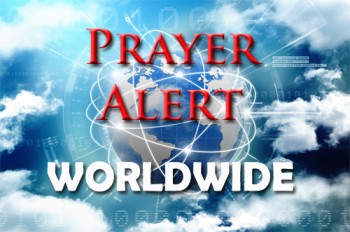
David Fletcher
David Fletcher is Prayer Alert’s Editor.
He is part of a voluntary team who research, proof-read and publish Prayer Alert each week.
If you would like to make a donation towards our running costs, please click here.
Following the huge explosion in Beirut on 4 August, Aid to the Church in Need (ACN) is sending an emergency food package worth £226,000 from the UK. The Christian quarter of the city was the worst affected by deaths and damage, so the bishops, the clergy, and the lay faithful asked ACN for assistance. Christian communities, churches and other buildings are going to need a lot of repair. At least ten churches and immeasurable livelihoods were destroyed by the blast. In one second, more damage was done to this area of Beirut than throughout the long years of the civil war. It will have to be built again from the ground up. John Pontifex from ACN said, ‘We call on Jesus to bring healing and to bring a sense of reconciliation because in so many ways this particular explosion has drawn attention to the problems of government and accusations of neglect at the very least. There's a whole sense of healing needed at every level and a chance to rebuild. So literally, the call should be, Lord, help us rebuild, help us recover, help us find a new way to get through this terrible, terrible time.’
The explosion in Lebanon has reignited fears among Sydney residents where a huge chemical plant sits within three kilometres of the Sydney central business district (CBD). Residents have been demanding for years that the stockpile, four times larger than Beirut’s, should be moved away from the CBD and surrounding suburbs. Explosives expert Tony Richards said it is worth noting that plants used to produce and store ammonium nitrate and other explosive chemicals are not uncommon. There are thousands of facilities just like Beirut’s in Texas, Paris, and other places.
Dozens of foreign Christians in Turkey have been forced to leave the country or been banned from returning, in what appears to be government targeting of the Protestant Christian community. Many, like Carlos Madrigal of Spain, had been serving in Christian leadership roles in Turkey for decades, forming families and buying property. At the airport in November 2019, Carlos was given a stamp in his passport that would keep him from returning to Turkey, so he cancelled his trip and appealed the decision. He was told, ‘We must inform you that since 2019, it has been made increasingly difficult for foreign Protestant clergy serving in Turkey to be resident in our country’. An estimated 35 Christian workers received similar bans in 2019 and 16 more since the end of June. 10,000 Turkish Protestants attend 170 churches, many of them house churches. Turkey ‘officially’ allows freedom of religion, including conversion from Islam.
The authorities in Kazakhstan's capital Nur-Sultan ordered the confiscation of the buildings of both Grace Presbyterian Church and Agape Pentecostal Church, which is building a place of worship on the same site. City authorities claim the land is needed for a new kindergarten. But officials refuse to explain why they cannot find another site for this, despite two possibly suitable other buildings being in the same Baikonur District of the capital. The move to confiscate both churches' property was initiated by the Construction and Residential Policy Department. It is unclear if corruption is a factor in the confiscation decision. Local media reported on 17 July that an unnamed former head of the Department is being investigated over the alleged embezzlement of 200 million Tenge (£363,733.80).
On 23 July the Catholic bishop of Pemba spoke out deploring the world’s indifference to escalating extremist violence in northern Mozambique, where multiple churches have been burnt, people beheaded, young girls kidnapped, and over 200,000 people displaced by the violent insurgency. Parliamentarian Paulo Rangel said. There are reports of insurgents beheading fifteen people in a week. Pray for the Church as it works with families who have suffered attacks and have lost everything. Also there is coronavirus in nine out of Mozambique’s ten provinces. Pray for organisations focusing on preventing contagion by disseminating information and raising awareness. Pray for those distributing essential aid to meet families’ immediate needs, including food, seeds, and hygiene kits. See https://www.actionaid.org.uk/about-us/where-we-work/mozambique
On 4 August, Typhoon Hagupit struck while the Yangtze flood levels were still high (see). Two months of heavy continuous rain had caused 433 river levels to rise above flood control lines, devastating 27 of the country's 31 provinces. Thirty-three rivers reached record highs. Economic losses are about 86 billion yuan (£9,404 million) to date. Pray for God to release ongoing support and humanitarian aid to all of the affected areas. Pray for the millions of displaced people to be safe in their shelters, and for a stable future for countless families whose homes and livelihoods are affected.
On 1 August, demonstrators in Portland damaged property and set fire to American flags and Bibles. Again, little law enforcement presence was visible, and no arrests were made. After weeks of similar violent rioting and nightly attacks, on 4 August federal officers saw their first night of state and local law enforcement support and experienced relative peace with crowds ‘subdued.’ Activity around the courthouse continues, but violence is diminishing after an increased state and federal law presence on the ground. It will remain until the authorities determine that the courthouse and other federal properties are safe. Although crowd sizes have dwindled from the thousands in July, observers on 6 August reported many people, including some with ‘press’ written on their outer garments (indicating journalists), continuing to throw glass and plastic bottles at police officers.
California ordered a ban on indoor singing in places of worship, so a worship leader and an outreach ministry leader have proclaimed that ‘the Church has left the building.’ Sean Feucht, who recently led a crowd of nearly 1,000 in worship songs facing the ocean in Huntington Beach, said they were going out on the bridge between church and community: ‘We’re going to meet in parks. We’re not restricted to the four walls. We can still be the church even if we’re not in our buildings.’ A newspaper article supports the claim of ‘revival’ with its headline, In Huntington Beach, a revival with church at the ocean’s edge, photos of baptism, and testimony from attenders. An Instagram video post captured by this reporter shows Feucht leading the crowd at the event: see
Christians in Japan belong to a minority religion. Less than 1% of the population claim Christian affiliation, although 50 -70% are married in Christian ceremonies. 253,000 Japanese are deaf and although there is a Japanese sign language in Buddhism, it has been difficult for Christian outreach to this minority group without a Bible for them. Since the 1990s Wycliffe Bible Translators have been working to bring the Bible to Japanese deaf people. They have finished Daniel, and are now working on Ezra. Once translations are complete, videos will be recorded for the deaf community. A Wycliffe missionary said, ‘We really want to see God’s Word made available to each heart language, so that there is no language barrier between individuals anywhere in the world and the revelation that God has given us through His Word.’
Wearing face masks in shops creates massive communication barriers for deaf people who lip-read. The group Deaf Connect have produced cards which deaf people can carry round, asking people to remove their masks when they are speaking to them. Action on Hearing Loss is advising the general public to remove their masks, make sure they face the person they are speaking to and recommend speech-to-text apps. Janice Silo from Signs of God told Premier Christian Radio that lip-reading people wearing masks is impossible. She said, ‘Sometimes we ask people to write things down and they behave as if that is beneath them. Like they'd never heard of paper and pencil before! But writing stuff down is really useful. Also, when coronavirus is finished and we don't have to wear masks any more, please continue what you've been doing, being patient and writing stuff down.’

